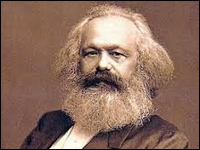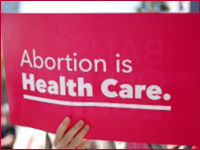 Lord Byron, in his moving poem Childe Harold’s Pilgrimage, offers the following reflection on life:
Lord Byron, in his moving poem Childe Harold’s Pilgrimage, offers the following reflection on life:
I seek no sympathies, nor needs,
The thorns which I have reaped are of the tree I planted,
They have torn me, and I bleed
I should have known what fruit would spring from such a seed.
If there’s one immutable lesson we learn from life, it is ‘we reap what we sow’.
From the micro to the macro, from the personal to the national, we know that actions have consequences.
In the natural world of physics, Isaac Newton formulated the laws of motion – his third law being that for every action, there is an equal and opposite reaction – meaning that if one object exerts a force on a second object, the second object exerts an equal and opposite force back on the first.
We can all relate to this.
In the political world, it is said, ‘No good turn goes unpunished’ or ‘Why is he attacking me? I never did him any favours!’
My father used to say, ‘Beware of beginnings’. Once you start something, it is difficult to end it.
You may not even be thanked for beginning it, only criticized for ending it.
Which must be how America and Donald Trump are feeling right now.
For 80 years, America has patrolled the world’s shipping lanes, keeping trade functioning.
It has, at its own expense, been the world’s policeman and the principal source of funding for all manner of aid and humanitarian relief.
So, when a new President wants to clean up the ‘waste, fraud and abuse’ in the system and start forcing wealthy countries to pay more towards their own defences, instead of the world thanking them for 80 years of benevolence, it cops nothing but abuse.
Surely it is time the rest of the world acknowledged that it should not be left to one country to solve all the world’s problems.
After all, a strong America – militarily and financially – is undoubtedly a good thing for the world.
Even more so considering the rise of China.
In another case of reaping what has been sown, it has long been an accepted understanding in liberal democracies that there be a balance between a State’s three heads of power – the Legislature (congress/parliament), the Executive (President/Prime Minister/Cabinet Ministers) and the Judiciary (judges/courts).
It is the ‘rock – paper – scissors’ of how democratic societies govern themselves.
As we learn from the childhood game, ‘the rock blunts the scissors, the scissors cuts the paper, and the paper wraps the rock’.
If, however, one of the branches becomes too powerful and no other branch can control it, the system collapses.
Witness the dangerous overreach by some of the world’s judiciaries in taking on the role of opposition to popularly elected governments.
While we understand why those accustomed to having power do not like relinquishing that power – access to taxpayers’ money to fund their political infrastructure being the primary reason – engaging in relentless legal warfare such as that waged against Donald Trump invariably backfires.
And what French President Emmanuel Macron’s left-wing Renaissance party could not achieve at the ballot box, has been taken up on its behalf by the courts to convict the leading contender in the next election, Marine Le Pen, banning her from contesting the election!
Similar legal shenanigans have been occurring in Brazil, Romania and Israel, with unelected judges going out of their way to thwart the will of the people.
Canadian author Mark Steyn makes an ominous prediction:
‘We will soon no longer be able to vote ourselves out of this’.
In other words, no matter how people vote, the ruling class will not accept it.
The upshot will undoubtedly be the deterioration of national cohesion and the undermining of confidence in a country’s institutions.
We reap what we sow.
In one final observation, health has always been one of those ‘actions have consequences’ domains.
The term ‘fat cats’, for example, was once used to describe rich people. Poor people were undernourished and thin.
Today, it is often the case that the poor are obese, and the rich are thin!
Why is that?
Why has obesity more than doubled over recent years when governments spend more on health than ever before – and promise to spend even more at every election?
The same goes for education.
In 2013 the federal government spent $12bn on schools.
It is now $30bn, yet all the objective tests show school results going backwards.
The Australian’s Greg Sheridan says, ‘Whatever the problem was, it wasn’t money’.
But perhaps it was.
Too much of it, that is.
We reap what we sow.
Thank you for your support.
 As most will recall, the Coalition went to the 2013 election promising to ‘abolish the carbon tax, abolish the mining tax and stop the boats’.
As most will recall, the Coalition went to the 2013 election promising to ‘abolish the carbon tax, abolish the mining tax and stop the boats’. They say to be a successful traveller, you need a good sense of humour – and no sense of smell!
They say to be a successful traveller, you need a good sense of humour – and no sense of smell! Marx or Schumpeter?
Marx or Schumpeter? It’s been said, ‘Our lives are not examined for medals, diplomas or degrees, but for battle scars’.
It’s been said, ‘Our lives are not examined for medals, diplomas or degrees, but for battle scars’. Heinrich Heine’s ominous line, “Those who burn books will in the end burn people,” is one of the most quoted in modern history. It appears in his 1821 play, Almansor.
Heinrich Heine’s ominous line, “Those who burn books will in the end burn people,” is one of the most quoted in modern history. It appears in his 1821 play, Almansor. The Black by-election is over and, as widely reported, the seat switched quite spectacularly from the Liberal Party to Labor in a massive 13 per cent swing.
The Black by-election is over and, as widely reported, the seat switched quite spectacularly from the Liberal Party to Labor in a massive 13 per cent swing. Over 40,000 Australian children are currently in government-sponsored care. Approximately 30,000 have been there for more than two years. Fewer than 200 were adopted.
Over 40,000 Australian children are currently in government-sponsored care. Approximately 30,000 have been there for more than two years. Fewer than 200 were adopted. It’s been said that there are only two industries in the world – farming and mining. The rest are jobs.
It’s been said that there are only two industries in the world – farming and mining. The rest are jobs. The Australian Family Party’s candidate in Black is Jonathan Parkin (pictured). A former commercial airline pilot, Jonathan has lived in the electorate for most of his life. Married with two children, he has been involved in a number of community activities, including the Nipper program at the local Seacliff Surf Life Saving Club. More about Jonathan in coming weeks.
The Australian Family Party’s candidate in Black is Jonathan Parkin (pictured). A former commercial airline pilot, Jonathan has lived in the electorate for most of his life. Married with two children, he has been involved in a number of community activities, including the Nipper program at the local Seacliff Surf Life Saving Club. More about Jonathan in coming weeks. In the book of Revelation, the last book of the Bible, there is a vivid description of The New Jerusalem – The Holy City – referred to in John Bunyan’s Pilgrim’s Progress as ‘The Celestial City’, the ultimate heavenly home of believers.
In the book of Revelation, the last book of the Bible, there is a vivid description of The New Jerusalem – The Holy City – referred to in John Bunyan’s Pilgrim’s Progress as ‘The Celestial City’, the ultimate heavenly home of believers.